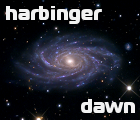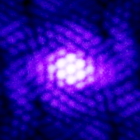|
Number Scales
|
|
| apenpaap | Date: Wednesday, 12.06.2013, 15:53 | Message # 31 |
 World Builder
Group: Users
 Antarctica
Antarctica
Messages: 1063
Status: Offline
| Sure, renaming a thousand to a million would fix the short scale, and indeed arguably make it better than the long scale... However, that's not how the short scale actually works.
And alright then, let's take Octillion as the arbitrary end-point of the scales if that's the final number anyone even knows. Then the short scale runs out of gas at 10^27 and the long scale at 10^51. You can get further (a quadrillion times further in this arbitrary example) without having to look up what the numbers are called in the long scale.
I occasionally stream at http://www.twitch.tv/magistermystax. Sometimes SE, sometimes other games.
Edited by apenpaap - Wednesday, 12.06.2013, 15:57 |
| |
| |
| HarbingerDawn | Date: Wednesday, 12.06.2013, 16:07 | Message # 32 |
 Cosmic Curator
Group: Administrators
 United States
United States
Messages: 8717
Status: Offline
| Quote (apenpaap) However, that's not how the short scale actually works.
Ok fine. I now decree that the number scale where 1000 = million, 1000000 = billion, ... be known as the Revised Short Scale, and will henceforth only argue its merits rather than those of the Traditional Short Scale.
All forum users, please read this!
My SE mods and addons
Phenom II X6 1090T 3.2 GHz, 16 GB DDR3 RAM, GTX 970 3584 MB VRAM
|
| |
| |
| midtskogen | Date: Wednesday, 12.06.2013, 16:41 | Message # 33 |
 Star Engineer
Group: Users
 Norway
Norway
Messages: 1674
Status: Offline
| Quote (HarbingerDawn) And I don't see how that's "running out of gas".
Actually, we run into some trouble already after Latin 20, vigintillion. There's where Latin numbers stop being a single word. 21 = unus et viginti or viginti unus, 102 = centum et duo, 200 = ducenti, 202 = ducenti et duo, and it becomes less obvious how to make a "illion" word out of it. And as I explained in the other post, Latin didn't invent new words beyond thousand but relied on morphology instead, so the Latin system totally breaks down at 1011. That was good enough for Romans who only needed such numbers for counting money. If we want something open-ended, another system must be adopted. The current system hits the wall at naming 10300000003 (short) or 10600000000 (long). Unless we resort to miliensmilienscentenamilillion for that, and miliensmiliensmilienscentenamilillion for 10300000000003 (short) or 10600000000000 (long) and so on.
NIL DIFFICILE VOLENTI

|
| |
| |
| HarbingerDawn | Date: Wednesday, 12.06.2013, 16:51 | Message # 34 |
 Cosmic Curator
Group: Administrators
 United States
United States
Messages: 8717
Status: Offline
| I just don't see why naming limitations are a problem at that point, since anyone who would ever need to use such numbers would be quite comfortable with simply discussing numbers in terms of other numbers. There will always be numbers that you can't name since there are an infinity of numbers. So beyond a certain point it does not matter if you can name them or not.
All forum users, please read this!
My SE mods and addons
Phenom II X6 1090T 3.2 GHz, 16 GB DDR3 RAM, GTX 970 3584 MB VRAM
|
| |
| |
| apenpaap | Date: Wednesday, 12.06.2013, 16:54 | Message # 35 |
 World Builder
Group: Users
 Antarctica
Antarctica
Messages: 1063
Status: Offline
| Quote (HarbingerDawn) Ok fine. I now decree that the number scale where 1000 = million, 1000000 = billion, ... be known as the Revised Short Scale, and will henceforth only argue its merits rather than those of the Traditional Short Scale.
Well, in that case the Revised Short Scale certainly is a decent alternative to the long scale, but I still slightly prefer the long scale for three reasons: A: the argument about running out of gas still applies, but now it runs out even earlier: the revised short scale is much less economic with words than the long scale; 2: it would get very, very confusing. Since no-one actually uses the scale, if I start calling a thousand a million and a million a billion, things are going to get messy (admittedly this is also partially true of using the long scale in English, which is why I often use the short scale for clarity anyway. However, confusion only kicks in at 10^9 rather than 10^3 and it's more accepted than this revised short scale you just made), and thirdly, I'm not used to it. This last one is not a good argument, admittedly, but enough to break a tie (which this isn't to me because of the other reasons).
I occasionally stream at http://www.twitch.tv/magistermystax. Sometimes SE, sometimes other games.
|
| |
| |
| midtskogen | Date: Wednesday, 12.06.2013, 17:21 | Message # 36 |
 Star Engineer
Group: Users
 Norway
Norway
Messages: 1674
Status: Offline
| Fine, even an open-ended system would rely on infinite stacking. It's hard to set an upper limit on how big numbers need to be for practical use. How many Planck spaces can fit into the current universe? Even googolplex fails to express it (but comes relatively close - according to Wikipedia a gogoolplex Planck spaces fit inside 2.5 cm³, but is this correct?).
NIL DIFFICILE VOLENTI

Edited by midtskogen - Wednesday, 12.06.2013, 17:23 |
| |
| |
| apenpaap | Date: Wednesday, 12.06.2013, 17:29 | Message # 37 |
 World Builder
Group: Users
 Antarctica
Antarctica
Messages: 1063
Status: Offline
| Actually, that's just a googol Planck volumes; a space of a googolplex Planck volumes would make the universe look incredibly much smaller than a single Planck volume compared to the universe. According to Wikipedia, the Universe is about 10^186 Planck volumes: ten unsexagintillion in short scale and an untrigintillion in long scale.
I occasionally stream at http://www.twitch.tv/magistermystax. Sometimes SE, sometimes other games.
|
| |
| |
| midtskogen | Date: Wednesday, 12.06.2013, 17:41 | Message # 38 |
 Star Engineer
Group: Users
 Norway
Norway
Messages: 1674
Status: Offline
| I misread the Wikipedia article. It says that 2.5 cm³ has a googol Planck spaces. But I can't get 10186 to work either. If a Planck length is roughly 1/1062 of the diameter of the universe (give or take a few orders of magnitude), then 62 cubed gives is 10238328.
Edit: Here's a simple question which even a googolplex might fail at: If you have enough Planck volumes to fill the entire universe, how many ways can you arrange them (3d permutations)?
I haven't the faintest clue, but it ought to be a pretty big number.
NIL DIFFICILE VOLENTI

Edited by midtskogen - Wednesday, 12.06.2013, 17:52 |
| |
| |
| apenpaap | Date: Wednesday, 12.06.2013, 17:57 | Message # 39 |
 World Builder
Group: Users
 Antarctica
Antarctica
Messages: 1063
Status: Offline
| Quote (midtskogen) 1/10^62 of the diameter of the universe (give or take a few orders of magnitude), then 62 cubed gives is 10^238328.
But you shouldn't cube 62, that's the exponent. You multiply it by three when you cube the number. (10^62)^3=10^(62*3)=10^186
I occasionally stream at http://www.twitch.tv/magistermystax. Sometimes SE, sometimes other games.
|
| |
| |
| Watsisname | Date: Wednesday, 12.06.2013, 18:09 | Message # 40 |
 Galaxy Architect
Group: Global Moderators
 United States
United States
Messages: 2613
Status: Offline
| Quote (midtskogen) Here's a simple question which even a googolplex might fail at: If you have enough Planck volumes to fill the entire universe, how many ways can you arrange them (3d permutations)?
I haven't the faintest clue, but it ought to be a pretty big number.
Not sure, but I guess it would involve factorials, and I'm fairly certain you couldn't express the number even in scientific notation. 

|
| |
| |
| midtskogen | Date: Wednesday, 12.06.2013, 18:13 | Message # 41 |
 Star Engineer
Group: Users
 Norway
Norway
Messages: 1674
Status: Offline
| Quote (apenpaap) But you shouldn't cube 62, that's the exponent.
Right. Funny how all sense of ballpark disappears at this scale.
Quote (Watsisname) I'm fairly certain you couldn't express the number even in scientific notation.
Oh, if you write a=1000^(1000^(1000^(1000^(...)...) you get pretty far before you reach the end of the page. Then on the next page write b=a^(a^(a^(...)...). On the third c=b^... We can probably stop early in the first line, and certainly before z.
NIL DIFFICILE VOLENTI

Edited by midtskogen - Wednesday, 12.06.2013, 18:27 |
| |
| |
| Watsisname | Date: Wednesday, 12.06.2013, 18:40 | Message # 42 |
 Galaxy Architect
Group: Global Moderators
 United States
United States
Messages: 2613
Status: Offline
| Yeah, but I don't even know if that would work either. :P
If I'm not terribly mistaken then the number of possible arrangements of unique spaces actually is simply the factorial of the number of spaces, regardless of the number of dimensions involved. So the question is what does 10186! evaluate to? 
Edit: Oh, WolframAlpha says that a googolplex factorial (10^10^100)! can be written as 10^10^10^10^2. And 10^186 factorial is 10^10^10^2.745(etc). I thought it'd be much worse.

|
| |
| |
| midtskogen | Date: Wednesday, 12.06.2013, 19:10 | Message # 43 |
 Star Engineer
Group: Users
 Norway
Norway
Messages: 1674
Status: Offline
| Never underestimate exponential growth of exponents, and certainly not when you do it recursively!
And even if it were worse, 10186! is scientific notation as good as anything else, and a pretty concise one as well. Now, take that number and fill the rest of the page with "!!!!!!!!".
Clueless posts with lots of "!!!!!1!!!11" will never be the same again.
NIL DIFFICILE VOLENTI

Edited by midtskogen - Wednesday, 12.06.2013, 19:18 |
| |
| |
| Watsisname | Date: Wednesday, 12.06.2013, 19:30 | Message # 44 |
 Galaxy Architect
Group: Global Moderators
 United States
United States
Messages: 2613
Status: Offline
| Quote Now, take that number and fill the rest of the page with "!!!!!!!!".
This makes me think of this commercial. 

|
| |
| |